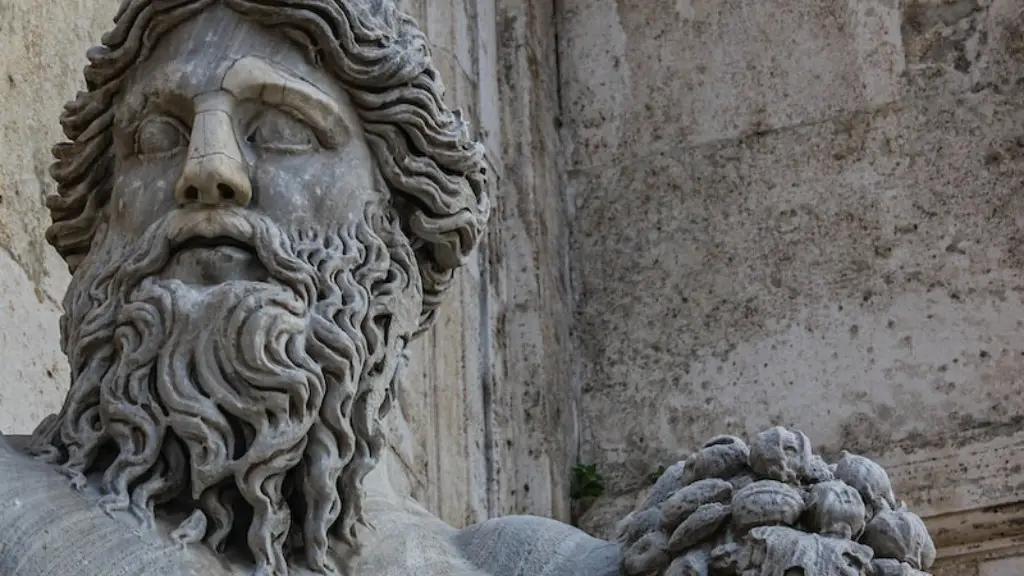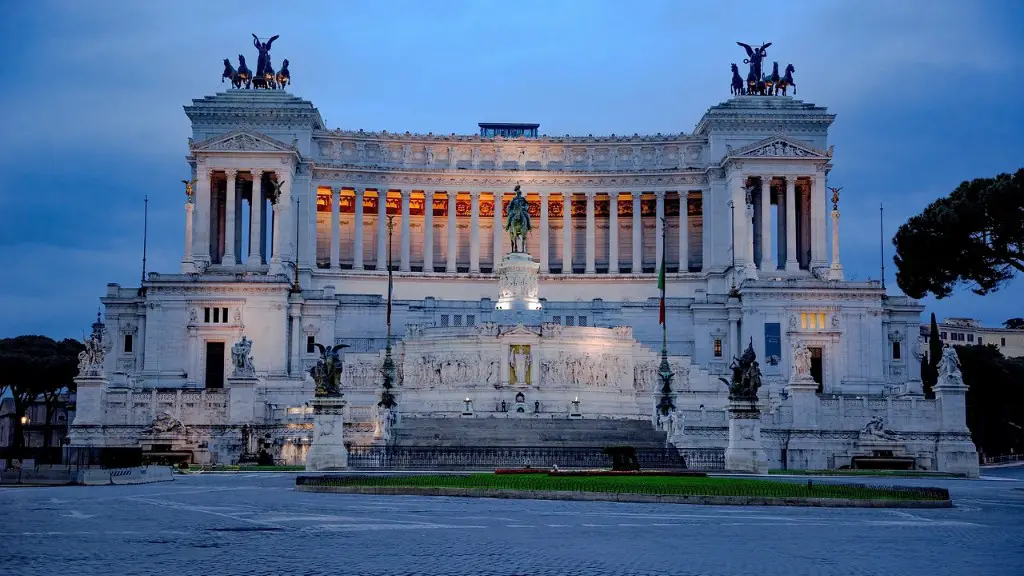Roman Conflict on the Rise
The Roman Republic was a time of great unrest, with continuous and endless internal battles, expansion projects and civil wars. Private armies, originating from Rome’s wealthy citizens and magistrates, have had an important role to play in this period. The purpose of these forces was to protect their lands and interests against foreign armies, but also to use them to support their own political ideologic goals.
In the years leading up to the civil war in Rome, private armies had already started to become more common. This was mainly due to the fact that the Roman state had a limited military and was unable to effectively protect its borders or protect citizens from outside threats. As such, many landowners pooled their resources to form their own armed forces, which served not only to protect the individual, but also to strengthen the interests of the larger family.
These private armies began to gain power and influence within Rome, as they were capable of mobilising large numbers of troops with great speed and efficiency. This enabled them to effectively guard their own territories and influence the political landscape. For example, they could be used to control the senate, support candidates in elections, and even influence the decision-making of the ruling classes.
The power of private armies grew even further when wealthy Romans began to hire foreign mercenaries. These mercenaries brought a level of military knowledge, training and expertise that was previously unseen in Rome. This enabled them to quickly gain a foothold in Roman politics, and become an influential factor in the political and military landscape.
The private armies were also utilised in the civil war that ultimately brought down the Roman Republic. They served as a tool for the wealthy to increase their political and military power, giving them the ability to turn the tide of the war. As a result, the demise of the Roman Republic was partly linked to the actions of the private armies.
The Impact of Private Armies on Roman Politics
The rise of private armies in Rome had a significant impact on the political landscape. The magistrates and wealthy citizens who held these forces greatly increased their influence and power base, allowing them to influence the decisions of the ruling classes.
The private armies also impacted the relationship between the plebeians and patricians. Before the rise of these forces, the plebeians were powerless against the patricians and had little means of challenging them. With the rise of these forces, however, the plebeians were able to fight back, challenging the patricians and ultimately bringing them down.
The impact of the private armies was not limited to the political sphere. They also had a major impact on military affairs. These forces allowed wealthy Romans to quickly muster large numbers of troops, and send them into battle with greater efficiency than before.
Ultimately, the rise of private armies enabled the wealthy to increase their power and influence within Roman politics and to shape the military landscape. These forces enabled them to dominate the political arena and bring down the Roman Republic.
The Disintegration of the Roman Republic
The rise of private armies in Rome had a devastating impact on the Roman Republic. The political influence of the wealthy landowners had reached an unprecedented level, and their continued power expansion eventually led to the disintegration of the Republic.
The political momentum gained by the private armies allowed them to effectively control the senate and the decision-making of the ruling classes. This allowed them to gain access to privileged positions and to control the actions of the state.
The power of the private armies also allowed them to dominate the military landscape. This enabled them to quickly mobilise and deploy large numbers of troops with greater speed and efficiency than ever before. As a result, they were able to increase their own military capabilities and gain a foothold in the civil war.
Ultimately, the rise of private armies in Rome contributed to the downfall of the Republic. The political influence and military power of these forces enabled them to control the political and military landscape, leading to the disintegration of the Republic.
The Legacies of Private Armies
The rise of private armies in Rome left many legacies. On the one hand, they enabled the wealthy to increase their influence and political power, and contributed to the disintegration of the Roman Republic. On the other hand, their military capabilities and professionalism enabled them to combat the expansion of foreign powers, significantly strengthening the defence of Roman borders.
The rise of private armies also had an impact on the military strategies of the Romans. The expertise and combat capabilities of these forces enabled them to quickly mobilise and deploy large numbers of troops. This new form of warfare enabled Rome to effectively repel foreign aggressors and expand their borders.
The legacy of these forces is still visible in the modern world, as their tactics and strategy continue to form the basis of modern military operations. Their ability to quickly mobilise large numbers of troops is still used in combat operations today, making the legacy of private armies a lasting one.
The Impact of Private Armies on Roman Society
The rise of private armies in Rome also had a profound impact on Roman society. These forces enabled the wealthy to increase their influence and prestige within Rome, while also granting them access to privileged positions and political influence. This enabled them to shape the political and military landscape and had a direct impact on the Roman population, who were often the victims of the unrest caused by these forces.
The rise of private armies also had an impact on the economy of Rome. The resources and manpower used to maintain these forces had to come from somewhere, and this often meant that taxes had to be raised and resources taken away from other areas of the economy, such as infrastructure and public works. This caused a deterioration in the standard of living for many, as services and assets were taken away.
Finally, the legacy of these private armies can also be seen in modern ideologies. The ability of the wealthy to gain political power and influence based on the strength of their military forces can be seen in many modern societies and countries.
The Effect of Private Armies on Ancient Roman Culture
The rise of private armies in Rome also had a significant impact on ancient Roman culture. These forces enabled the wealthy to increase their political and military power, and gain access to privileged positions in the Roman government. This enabled them to dictate the decisions and outcome of the civil war, leading to the fall of the Roman Republic.
The influence of the private armies also had a profound effect on Roman literature and culture. The power of these forces was celebrated by authors, historians and poets, and their feats were immortalised in literature and art. In this way, the legacy of these forces still lives on in Roman culture.
The rise of private armies also had an impact on Roman religion. As the power of these forces grew, so too did their influence on the religious landscape. The worship of certain gods and goddesses, such as Mars and Minerva, was seen as a sign of admiration for the power of these forces.
Ultimately, the rise of private armies in Rome had a profound and lasting effect on the cultural and religious landscape of ancient Rome.
Conclusion
The rise of private armies in Rome had many consequences. On the one hand, these forces enabled the wealthy to increase their influence and strength within the Roman Republic. On the other hand, the military capabilities and professionalism of these forces enabled them to combat the expansion of foreign powers and increase the defence of Roman borders.
The rise of these forces also had a profound impact on Roman culture and religion, as their power was celebrated and immortalised in literature and artwork. Finally, their legacy still lives on today, with their tactics and strategies continuing to form the basis of modern military operations.

